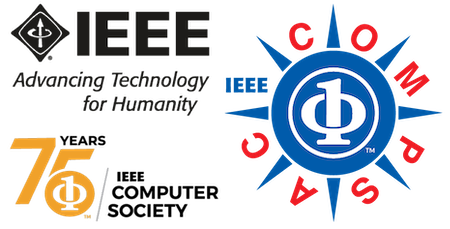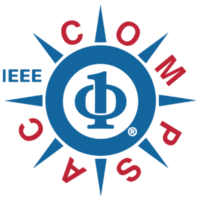The 13th IEEE International Workshop on Security Aspects in Processes & Services Engineering (SAPSE 2021)
Call for Papers
SAPSE 2021 aims to foster cooperation among software practitioners and researchers in order to exchange the latest industrial experience and research ideas on services and processes engineering
The area of processes and services engineering is a very attractive field for innovative research, particularly in the last years, when collaborative and outsourced processing have become an interesting paradigm for developing more complex services available on distributed platforms. Distributed interacting processes have high potential as demonstrated in the case of blockchain technology, allowing a new generation of services and interaction models. These distributed infrastructures often running on remote platforms pose new important challenges particularly when considering security aspects. New techniques and methodologies are needed to be able to build better, more robust and more trusted systems, where security is taken into account and integrated in the whole design process since the very first stages.
Researchers and practitioners all over the world, from both academia and industry, working in the areas of process engineering, distributed services and security, cloud security, blockchain related platforms and applications are invited to discuss state of the art solutions, novel issues, recent developments, applications, methodologies, techniques, experience reports, and tools for the development and use of secure service oriented systems. Topics of interest include, but are not limited to, the following:
- Trust, security, and privacy in service-oriented and cloud-based systems
- Secure business process composition
- Blockchain platforms and blockchain based applications
- Security of distributed business processes
- Risk management in business processes
- Trust and policy management in clouds
- Service dependability, survivability, and reliability
- Design and development of secure service oriented systems
- Certification of cloud-based and service oriented systems
- Verification, validation and testing of security properties of service oriented systems
Important Dates
Workshop papers due: 21 April 1 May 2021 (UPDATED)
Workshop paper notifications: 15 May 2021
Camera-ready and registration due: 31 May 2021
Authors are invited to submit original, unpublished research work, as well as industrial practice reports. Simultaneous submission to other publication venues is not permitted. In accordance with IEEE policy, submitted manuscripts will be checked for plagiarism. Instances of alleged misconduct will be handled according to the IEEE Publication Services and Product Board Operations Manual.
Please note that in order to ensure the fairness of the review process, COMPSAC follows the double-blind review procedure. Therefore we kindly ask authors to remove their names, affiliations and contacts from the header of their papers in the review version. Please also redact all references to authors’ names, affiliations or prior works from the paper when submitting papers for review. Once accepted, authors can then include their names, affiliations and contacts in the camera-ready revision of the paper, and put the references to their prior works back.
Formatting
Workshop papers are limited to 6 pages. Page limits are inclusive of tables, figures, appendices, and references. Workshop papers can add an additional 2 pages with additional page charges ($250USD/page).
Paper Templates
IEEE Paper templates are available in MS Word 2003 and LaTex. All submissions must use US 8.5×11 letter page format.
Note: If the submission link does not appear on EasyChair after logging-in, please click the above button again.
Workshop Organizers
Email: stelvio.cimato@unimi.it
Email: nadia.bennani@insa-lyon.fr
Program Committee
Nadia Bennani, University of Lyon, France
Carlo Blundo, University of Salerno, Italy
Chiara Braghin, Università degli Studi di Milano, Italy
Ernesto Damiani, Università degli Studi di Milano, Italy
Chun-I Fan, National Sun Yat-sen University, Taiwan
Clemente Galdi, University of Naples, Italy
Omar Hasan, University of Lyon, France
Fuyuki Ishikawa, National Institute of Informatics, Japan
Dimitris Karagiannis, University of Vienna, Austria
Silvia Mella, STMicroelectronics, Italy
Hung-Min Sun, National Tsing Hua University, Taiwan
James C.N. Yang, National Dong Hwa University, Taiwan
Chan Yeob Yeun, KUSTAR, UAE

